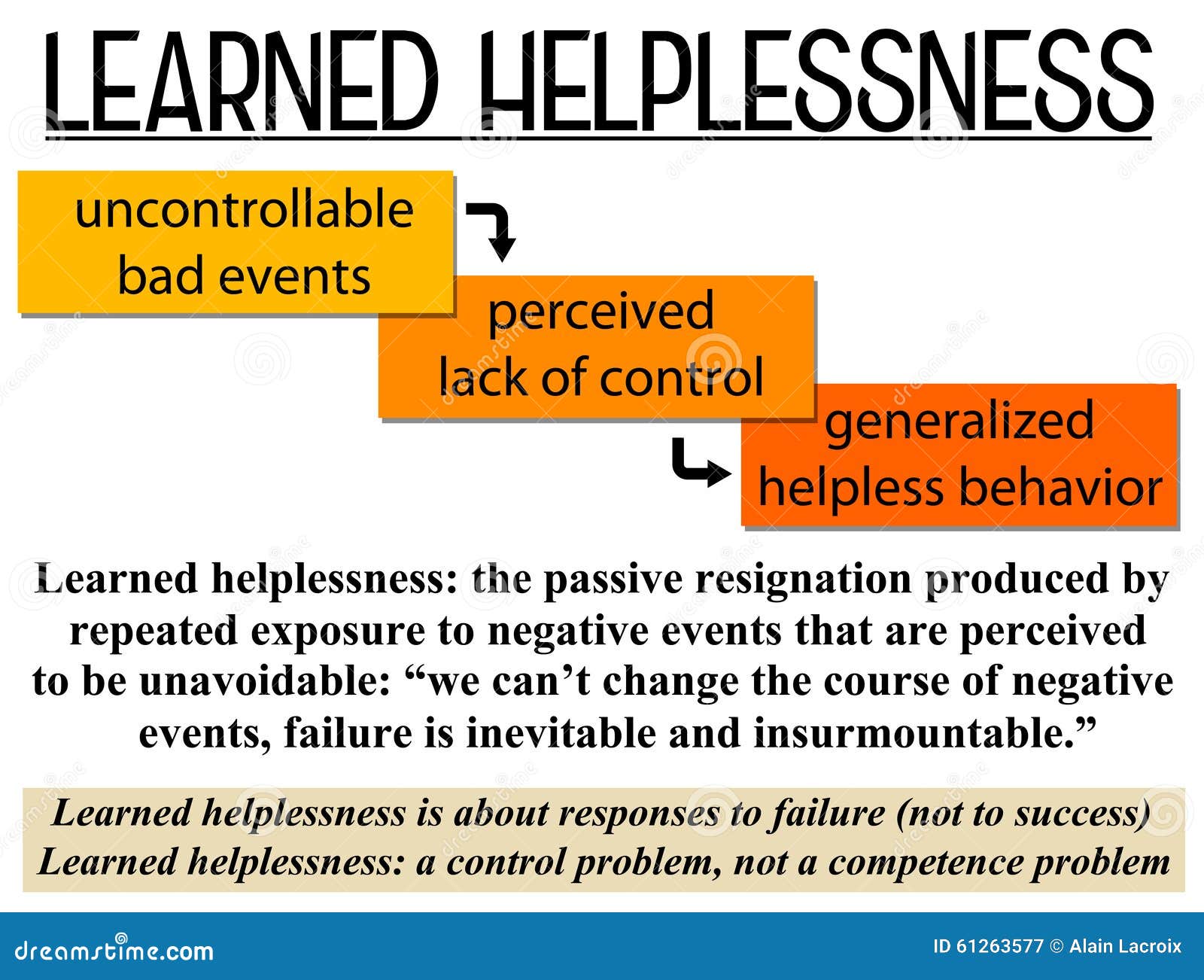learned helplessness is when humans and animals believe they have no control over their lives and situations and begin to act helpless even if change may be possible

“Learned Helplessness”: Understanding the Human and Animal Psychological Phenomenon

Have you ever felt trapped in a situation with no way out, believing that your efforts would be futile? This sense of helplessness, known as “Learned Helplessness,” affects not only humans but animals as well. It is a psychological phenomenon where individuals, be it human or animal, perceive that they have no control over their lives and circumstances, leading them to behave as if they are helpless, even when change may be possible.
What is Learned Helplessness?
Learned Helplessness was first discovered by psychologist Martin Seligman while conducting experiments on dogs. Seligman found that dogs who had previously been exposed to uncontrollable electric shocks later failed to take action to avoid the shock when given the opportunity. Instead, they learned to be passive, accepting their situation even when they had the ability to change it.
This concept has been extended to human behavior, particularly in the context of mental health and depression. Individuals experiencing learned helplessness often believe that their actions have no impact on their life circumstances, resulting in a sense of powerlessness and hopelessness.
Causes and Effects of Learned Helplessness

Learned Helplessness can stem from various factors, including previous traumatic experiences, abusive relationships, or even a series of uncontrollable failures. These experiences can lead individuals to internalize a belief that they have no control over their lives, leading to a passive and helpless mindset.
The effects of learned helplessness can deeply impact an individual’s mental well-being and overall quality of life. It can contribute to the development of depression, anxiety, and feelings of low self-esteem. Additionally, it can hinder personal growth, achievement, and the ability to overcome challenges.
Breaking the Cycle of Learned Helplessness
While learned helplessness can feel overwhelming, it is essential to remember that change is possible. Recognizing and understanding the patterns of learned helplessness is the first step towards breaking this cycle.
One effective approach is cognitive-behavioral therapy (CBT), which can help individuals develop new ways of thinking and challenge negative beliefs. Through therapy, individuals can regain a sense of control by identifying their strengths, setting achievable goals, and taking small steps towards change.
Furthermore, building resilience and cultivating a growth mindset can significantly impact one’s ability to overcome learned helplessness. By embracing challenges as opportunities for growth, individuals can gradually regain their belief in their own power to influence their lives positively.
Conclusion
Learned Helplessness is a complex psychological phenomenon that can have detrimental effects on individuals’ well-being. Recognizing the signs and understanding its causes is crucial in order to break free from the cycle of helplessness. Through therapy, adopting a growth mindset, and developing resilience, individuals can regain their sense of control and actively shape their lives for the better.
Source: Positive Psychology
Share
Related Posts
Quick Links
Legal Stuff

